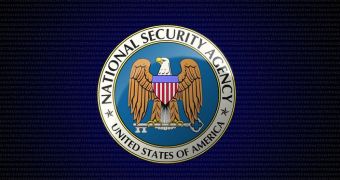Barack Obama, the US president, is preparing to deliver a new speech on the NSA topic, although there are still a few weeks left until then. However, it looks like intelligence officials have already come up with four alternatives to the controversial metadata collection program.
According to the Wall Street Journal, which quotes unnamed sources close to the subject, the proposals cover a wide range of options.
One of them puts the metadata collection program under the influence of telcos, or more specifically, all the data is to be held by these companies. The NSA would then inform them whenever it needs to search their databases for various investigations. The companies would only provide that information and nothing more.
Another option that the intelligence community came up with sees another federal agency as the holder of all data. For instance, the FBI or the CIA could end up keeping all the collected metadata.
A third option is to involve another entity, such as an outside company – neither telco nor federal agency – that would hold the necessary files.
Lastly, possibly the most hated option by the intelligence agency is to actually put a stop to the data collection program, as activists around the world have been demanding for months.
The White House didn’t seem too thrilled with the option either and back in January, when Obama made his big statement on the NSA topic, the president said that more investigation was needed.
These options are presented after Barack Obama promised that the NSA would no longer be holding onto the metadata and that the agency would need a warrant to see any type of record.
While the fact that there are now four options on the table hints to a definitive step forward, the NSA problem is much wider and does not resume itself to the metadata collection program alone. In fact, this is one of the programs that has a much more restricted impact on the world, considering that it mostly involves US citizens.
Programs such as PRISM, which involves the collection of Internet records, or any others that have been reported on, which affect a lot more people, have not been addressed thus far.
However, the metadata collection program has gotten so much attention mostly because US citizens should be protected from such intrusions by the Constitution. While protection for foreigners has been demanded time and time again, this has reached deaf ears and no action has been taken to protect their privacy.
The spy agency’s bosses have expressed their desire to carry on with the metadata collection program, which they say has been most efficient in the fight against terrorism.
The White House-appointed panel that reviewed the NSA’s programs, however, did not manage to find any type of information to back up this statement. A similar conclusion was reached by an independent research group that went through all the terrorism-related cases since 9/11 and did not manage to find any information hinting to the data collection program as playing any type of role in an arrest.

 14 DAY TRIAL //
14 DAY TRIAL //